- Regulatory Status
- RUO
- Other Names
- S1, Spike Protein
- Ave. Rating
- Submit a Review
- Product Citations
- publications
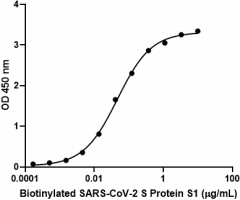
-

When recombinant ACE2-Fc chimera (Cat. No. 793202) is immobilized at 1 µg/mL, biotinylated recombinant SARS-CoV-2 S Protein S1 binds in a dose-dependent manner. The EC50 range for this effect is 20 - 100 ng/mL. HRP Avidin (Cat. No. 405103) was used to detect the binding. -

Stability Testing for Biotinylated Recombinant SARS-CoV-2 S Protein S1. Biotinylated recombinant SARS-CoV-2 S Protein S1 was aliquoted in PBS, 5% glycerol at 0.2 mg/mL. One aliquot was frozen and thawed four times (4x Freeze/Thaw), and compared to a control kept at 4°C (Control). The samples were tested in a binding assay with recombinant human ACE2-Fc chimera (Cat. No. 793202).
| Cat # | Size | Price | Quantity Check Availability | Save | ||
|---|---|---|---|---|---|---|
| 793804 | 25 µg | 329€ | ||||
| 793806 | 100 µg | 728€ | ||||
SARS-CoV-2 is a respiratory virus which causes coronavirus disease 2019 (COVID-19). The coronavirus spike (S) glycoprotein is a class I viral fusion protein on the outer envelope of the virion that plays a critical role in viral infection by recognizing host cell receptors and mediating fusion of the viral and cellular membranes. The S glycoprotein is synthesized as a precursor protein consisting of ~1,300 amino acids that is then cleaved into an amino (N)-terminal S1 subunit (~700 amino acids) and a carboxyl (C)-terminal S2 subunit (~600 amino acids). Three S1/S2 heterodimers assemble to form a trimer spike protruding from the viral envelope. The S1 subunit contains a receptor-binding domain (RBD) that can specifically bind to angiotensin-converting enzyme 2 (ACE2), the receptor on target cells. Triggered by receptor binding, proteolytic processing and/or acidic pH in the cellular compartments, the class I viral fusion protein undergoes a transition from a metastable pre-fusion state to a stable post-fusion state during infection, in which the receptor-binding subunit is cleaved, and the fusion subunit undergoes large-scale conformational rearrangements to expose the hydrophobic fusion peptide, induce the formation of a six-helix bundle, and bring the viral and cellular membranes close for fusion. The trimeric SARS coronavirus (SARS-CoV-2) S glycoprotein consisting of three S1-S2 heterodimers binds the cellular receptor angiotensin-converting enzyme 2 (ACE2) and mediates fusion of the viral and cellular membranes through a pre- to post-fusion conformation transition.
Product DetailsProduct Details
- Source
- SARS-CoV-2 S Protein S1, amino acid Val16-Arg685 (Accession # QHD43416.1), with a C-terminal 8-his tag and an Avi-tag was expressed in CHO cells. SARS-CoV-2 S Protein S1 was site-specifically biotinylated by enzyme BirA.
- Molecular Mass
- The 707 amino acid recombinant protein has a predicted molecular mass of approximately 78.9 kD. The DTT-reduced and non-reduced proteins migrate at approximately 120 kD by SDS-PAGE. The predicted N-terminal amino acid is Val.
- Purity
- > 95%, as determined by Coomassie stained SDS-PAGE
- Formulation
- 0.22 µm filtered protein solution is in PBS, pH 7.2
- Endotoxin Level
- Less than 0.1 EU per µg protein as determined by the LAL method
- Concentration
- 10 and 25 µg sizes are bottled at 200 µg/mL. 100 µg size and larger sizes are lot-specific and bottled at the concentration indicated on the vial. To obtain lot-specific concentration and expiration, please enter the lot number in our Certificate of Analysis online tool.
- Storage & Handling
- Unopened vial can be stored between 2°C and 8°C for up to 2 weeks, at -20°C for up to six months, or at -70°C or colder until the expiration date. For maximum results, quick spin vial prior to opening. The protein can be aliquoted and stored at -20°C or colder. Stock solutions can also be prepared at 50 - 100 µg/mL in appropriate sterile buffer, carrier protein such as 0.2 - 1% BSA or HSA can be added when preparing the stock solution. Aliquots can be stored between 2°C and 8°C for up to one week and stored at -20°C or colder for up to 3 months. Avoid repeated freeze/thaw cycles.
- Activity
- When recombinant ACE2-Fc Chimera (Cat. No. 793202) is immobilized at 1 μg/mL, biotinylated recombinant SARS-CoV-2 S Protein S1 binds in a dose-dependent manner. The EC50 range for this effect is 20 - 100 ng/mL. HRP Avidin (Cat. No. 405103) was used to detect the binding.
- Application
-
Bioassay
- Application Notes
-
BioLegend carrier-free recombinant proteins provided in liquid format are shipped on blue-ice. Our comparison testing data indicates that when handled and stored as recommended, the liquid format has equal or better stability and shelf-life compared to commercially available lyophilized proteins after reconstitution. Our liquid proteins are verified in-house to maintain activity after shipping on blue ice and are backed by our 100% satisfaction guarantee. If you have any concerns, contact us at tech@biolegend.com.
- Product Citations
-
Antigen Details
- Structure
- Biotinylated
- Distribution
-
SARS-CoV-2
- Function
- Attaches the virion to the cell membrane by interacting with host receptor, initiating the infection
- Interaction
- Lung cells
- Ligand/Receptor
- ACE2
- Bioactivity
- Measured by its ability to bind recombinant human ACE2
- Biology Area
- COVID-19
- Antigen References
-
- Lu R, et al. 2020. Lancet. 395:565-574.
- Li F. 2016. Annu Rev Virol. 3:237-261.
- Belouzard S, et al. 2012. Viruses. 4:1011-33.
- Song W, et al. 2018. PLoS Pathog. 14:e1007236.
- Shang J, et al. 2020. Nature. 581:221-224.
- Gene ID
- NA
- UniProt
- View information about S1 on UniProt.org
 Login / Register
Login / Register 










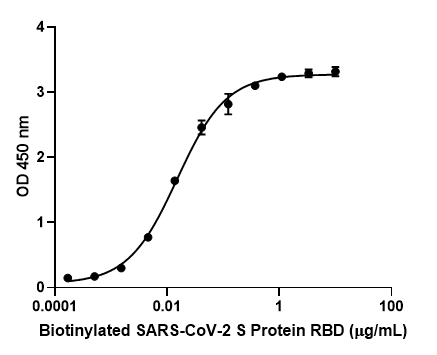
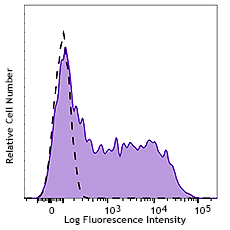
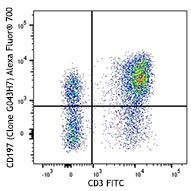
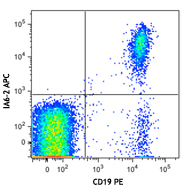



Follow Us